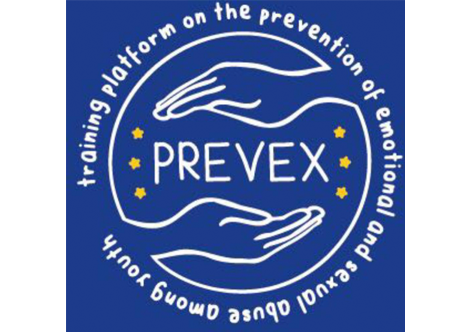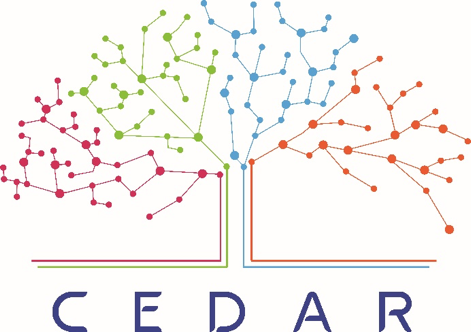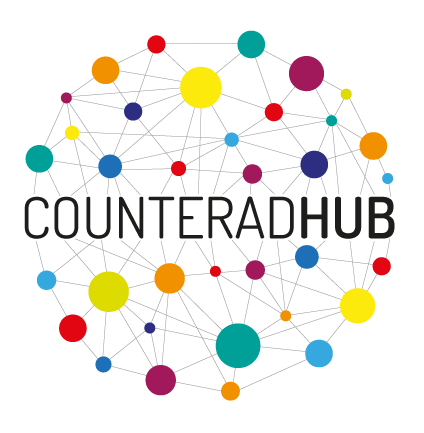
Projects

The RETOS-NGUE project (The challenge of managing Next Generation EU funds: threats and weaknesses of the Spanish institutional framework.), has two fundamental objectives: on one hand, it tries to make a holistic analysis (in eleven pillars of the social system) of the quality of four specific areas of our institutional framework (impartiality, transparency and accountability, integrity, cooperation/coordination/commitment and capacity), trying to generate robust causal explanations, in order to contribute to the construction of solid theories on the relationship between institutional quality and pathologies of power. Only from a solid theoretical and empirical basis can be made useful case studies and practical proposals. On the other hand, it analyses the design and management of the National Plan for Recovery, Transformation and Resilience (PNRTR), in relation to the same institutional variables, but focusing on the organisations and stakeholders most directly involved in its development, in order to determine whether risks have materialised and, from there, to offer proposals for institutional strengthening and resilience. institutional strengthening and resilience.
Assessment of existing barriers and updating of databases. 2. 2. Carrying out a holistic diagnosis of Spain’s institutional framework based on: 2.1. 2.1. Understanding the perception of institutional quality (in relation to the previously selected areas) at sub-national levels of government. 2.2 Generating a holistic diagnosis of the national integrity system. 2.3 Connect the data extracted from the institutional analysis with previously generated databases to relate institutional weaknesses and strengths to existing risks. 3. Analysis of the functioning of the PNRTR, in relation to the existing barriers and in the institutional dimensions selected above. 3.1. Propose institutional improvements based on the analysis carried out.l
From there, five specific objectives emerge: 1. Evaluation of existing barriers and updating databases. 2. Carrying out a holistic diagnosis of Spain’s institutional framework based on: 2.1. Know the perception of institutional quality (in relation to the previously selected areas) at sub-national levels of government. 2.2 Generate a holistic diagnosis of the national integrity system. 2.3 Connect the data extracted from the institutional analysis with the previously generated databases, to relate institutional weaknesses and strengths with existing risks. 3. Analysis of the functioning of the PNRTR, in relation to the existing barriers and in the institutional dimensions previously selected. 3.1. Propose institutional improvements based on the analysis carried out.



RESONANT

PREVEX
The PREVEX project aims to update the knowledge of universities on these violent, criminal and social dimensions of sexual deviance and to implement a platform of resources and specific courses adapted to the needs of both initial training (teachers, judges, specialized educators, psychologists) and to the needs of continuous training of professionals in youth, security, education.
The project is based on existing cooperation between universities and European networks for the prevention of sexist and sexual violence in Europe. It relies on the established skills of the university partners in training and pedagogical engineering, which will enable them to train university trainers and to participate in the implementation of public policies on education for human sexuality.
The PREVEX aims to develop coherent training plans to train new skills in the prevention of gender-based and sexual violence among adolescents and to propose new multilingual tools to better equip universities in the approach to emotional and sexual education in Europe. More specifically:
- Build a synthesis and a prospective in terms of contents and practices
- Characterise the pedagogical approaches and evaluate the impact of new training courses adapted to popular education situations
- To produce targeted resources on critical cases of gender-based and sexual violence
- O train professionals capable of multiplying the actions and improving the skills of young people It is also a question of building interdisciplinary bridges in the framework of social studies of deviant phenomena in modern sexuality.

CEDAR
The CEDAR (Continuing Education Against Radicalisation) project, funded by the European Commission under the ERASMUS+ programme, aims to train education professionals, senior managers and educational leaders, in order to help policy makers build better training and education plans. To achieve this, the CEDAR project focuses on the production, implementation and development of Europe-wide training for teachers and trainers, so that they can improve their skills on issues of deviance and extremism in educational settings. It also seeks to support university professionals in order to provide them with the keys to identify and prevent risks, as well as to implement appropriate actions depending on situations of deviance and extremism that may lead to violence against other young people and students.
The CEDAR project is expected to improve the knowledge and skills base of education and training professionals on how to identify and prevent different types of radicalisation in the context of education, vocational training and university. It will also involve increasing the competences of professionals from community organisations and associations working directly with young people in neighbourhoods with specific audiences (migrants, unemployed and school drop-outs, etc.).
At the end of the project, the following impacts are expected in the short and medium term:
- Increased awareness of the phenomenon of radicalisation and extremism in educational settings (national and European level), including personal, structural, ideological, political and social factors;
- A better understanding of the detection of ‘red flags’ of violent radicalisation of young people (warning signs and possibilities for intervention) and of the prevention and detection mechanisms currently in place in Europe, thanks to real case studies (e.g. the tools needed to assess existing risks of radicalisation);
- Increased capacity to support young people exposed to the risks of radicalisation by providing them with training that enables them to acquire new knowledge and new tools to face daily challenges;
- Increased awareness and capacity of the community youth service to engage with young people vulnerable to radicalisation and/or ex-radicals throughout their reintegration process;
A better understanding of mentoring programmes as a social support tool for ex-radicals or young people already identified as vulnerable to radical messages.

COVINFORM
The COVINFORM project analyses responses to COVID-19 at the government, public health, community and information and communication levels. Using an intersectional approach to health and socio-economic vulnerabilities, the European interdisciplinary consortium assesses the impact of the pandemic and its impact on vulnerable societies and groups, and models COVID-19 responses.
The project will carry out research at three levels:
- EU27 MS + UK level: secondary data analysis and model development;
- 15 target countries: analysis of documentary sources at the national level;
- 10 target communities: quantitative and qualitative empirical research.
Key outputs of the project are an online portal and a set of visual tools for stakeholders in government, public health and civil society that integrate data streams, indices and indicators, maps, models, primary research and case study findings, evidence-based policy guidance and creative evaluation tools. The project is funded through the European Commission’s H2020 programme.
PERCEPTIONS
PERCEPTIONS is a research project aimed at identifying and understanding (mis)perceptions of the EU abroad, assessing potential cross-border and external security problems in order to plan and outline reactions and countermeasures.
The aim is to understand the impact of new technologies, social media and country perceptions of migration flows and EU security in order to provide approaches, tools and practices to combat misperceptions.
The project will conduct research on the narratives and myths circulating about the EU in Western and Central Mediterranean countries. Based on the insights from the research, the consortium will develop a PERCEPTIONS framework model including policy recommendations and action plans.

JP-COOPS addresses the gaps between policy and practice in counter-radicalisation through cooperation between training providers from different EU states. It aims to institutionalise the currently diversified and dispersed training courses on judicial and police cooperation within the public-private environment. The project makes extensive use of European tools and platforms developed in previous EU-funded projects and paves the way for their interoperability and integration into the e-Justice Portal.
Objectives
- Cross-border cooperation on training for judicial and police cooperation.
- Expansion of existing networks through the exchange of information, training content and best practices to counter radicalisation and terrorism.
- Explore the opportunities of recent EU legislation to reduce the likelihood of recruitment in different social settings.
- Promote a “Knowledge Partnership” between EJTN, CEPOL, universities, judicial and police schools and ministries as outlined in the Europe 2020 Strategy.
Expected results
- Mapping, selection and prioritisation of all available training modules and tools in training projects focusing on radicalisation.
- Design of 5 new innovative training modules, usable for synchronous and a-synchronous delivery through a blended methodology and translated into 8 EU languages.
- Identification of 26 multi-agency national contact points (NCPs) trained as trainers.
- Design and implementation of a toolkit to encompass existing radicalisation toolkits (“super toolkit”).

PRACTICIES (Partnership against radicalisation in cities)
PRACTICIES mobilises networks of European cities and experts to better understand the human roots of violent radicalisation and to characterise these processes from their origins in order to build concrete tools and practices of prevention. This transnational project relies on cooperation and expertise in the field of urban security in cities and the experience of national counter-terrorism structures (partners from different countries involving government and law enforcement agencies, municipal governments, research institutions and private organisations).
Objetives
- Assess existing registration procedures, identify young people in the process of radicalisation in an urban space;
- Describe and explain the social course of the transition to radical action;
- Provide concrete tools for action.
Expected results
- Comparative analysis of violent radicalisation processes at the European level.
- Create new pedagogical tools aimed at preventing violent radicalisation.
- Evaluation of methods of identification and accompaniment of radicalised persons through a comparative analysis of European experiences.
- Develop a glossary of radical discourse at European level.
- Create digital tools to identify radical discourses.
- Improving local policies aimed at preventing violent radicalisation by identifying, analysing and exchanging good practices at European level.

It is a training aimed at judges, magistrates and other professionals linked to criminal justice with a multidisciplinary approach to prevent radicalisation processes that may culminate in the participation in violent actions.
It applies the priorities contained in the Spanish National Strategic Plan to Combat Violent Radicalisation (PEN-LCRV) 2015 to the training of judges, magistrates and other professionals linked to criminal justice.
It promotes a HUB, a space where all actors in the criminal justice system can cooperate for the effective achievement of common goals.
It promotes collaboration and knowledge exchange with Spanish, European and international networks of specialists specialising in this area of work.
Visit us
University Rey Juan Carlos
Paseo de los Artilleros S/N,
Office 116 classroom building.
Vicálvaro Campus (Madrid)
Contact us
914887568 – 914887893
914887887
Opening hours
Mo-Fr: 8am – 5pm
Sat/Sun: Closed


